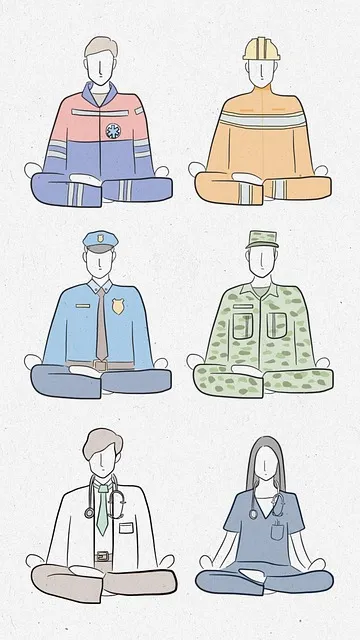Aurora Kaiser Permanente prioritizes safe, supportive mental wellness groups through clear ground rules emphasizing respect, confidentiality, and non-judgment. Structured, welcoming spaces encourage open dialogue, fostering trust and honest sharing of experiences. Facilitators model empathy, active listening, and genuine interest, creating a safe haven where members feel understood and valued. This environment enables participants to build coping skills, manage stress effectively, and find relief from anxiety, reflecting the core objectives of Aurora Kaiser Permanente's mental health program and Stress Management Workshops Organization.
“Unleashing the Power of Supportive Spaces: Mental Wellness Group Facilitation Techniques by Aurora Kaiser Permanente
This guide explores effective strategies for group facilitators at Aurora Kaiser Permanente, focusing on creating a safe haven for mental wellness. From establishing welcoming norms and setting respectful boundaries to fostering open communication, these techniques are key. Learn how to encourage active participation, handle sensitive topics with empathy, and facilitate creative activities that inspire emotional release and connection. Discover the art of guiding groups towards meaningful reflections and profound personal growth.”
- Establishing a Safe and Supportive Environment
- – Creating a welcoming atmosphere
- – Setting ground rules for group discussions
Establishing a Safe and Supportive Environment

Creating a safe and supportive environment is foundational to effectively facilitating mental wellness groups at Aurora Kaiser Permanente. This begins with establishing clear ground rules that emphasize respect, confidentiality, and non-judgmental attitudes among participants. A well-structured, welcoming space encourages open dialogue and fosters trust, making it easier for individuals to share their experiences and challenges openly.
The role of the facilitator is crucial in cultivating this environment. By modeling empathy, active listening, and a genuine interest in each individual’s well-being, facilitators create a safe haven where members feel understood and valued. This supportive atmosphere is essential for participants to build coping skills, manage stress effectively, and find relief from anxiety—all core objectives of the Aurora Kaiser Permanente mental health program and Stress Management Workshops Organization.
– Creating a welcoming atmosphere

In facilitating mental wellness groups, establishing a welcoming atmosphere is paramount, mirroring the nurturing environment that Aurora Kaiser Permanente mental health services strive for. Creating a safe space where participants feel comfortable sharing their experiences is key. Encouraging open dialogue with inclusive language and active listening fosters a sense of belonging, enabling individuals to connect on a deeper level. Techniques such as introducing oneself with vulnerability, normalizing shared struggles, and using peer support roles can significantly enhance group dynamics.
The process should focus on cultivating empathy, understanding, and compassion—essential components for effective depression prevention and promoting positive thinking. By fostering an atmosphere of acceptance and non-judgment, facilitators create an ideal environment for participants to explore self-care practices and cultivate resilience. This approach not only enhances the group’s collective well-being but also empowers individuals to navigate their mental health journeys with greater ease and support.
– Setting ground rules for group discussions

In facilitating mental wellness groups at Aurora Kaiser Permanente, establishing clear ground rules is a fundamental first step. These norms serve as a framework for creating a safe and supportive environment where every participant feels heard and respected. Before initiating discussions, the facilitator should encourage open communication, emphasizing active listening and empathy. This paves the way for honest exchanges while ensuring confidentiality, a crucial aspect in fostering trust among members.
Additionally, setting expectations regarding punctuality, attendance, and participation ensures a structured flow. Rules might include guidelines on how to handle disagreements or sensitive topics, promoting positive interactions. By involving group members in the process of establishing these rules, facilitators empower them to take ownership of their mental wellness journey. This collaborative approach aligns with the principles of Mental Health Policy Analysis and Advocacy, fostering a sense of community and collective responsibility for maintaining a healthy mindspace.
Group facilitation techniques, as exemplified by Aurora Kaiser Permanente’s approach to mental wellness, are powerful tools in creating supportive environments. By fostering welcoming atmospheres and establishing clear ground rules, facilitators can ensure safe spaces for vulnerable individuals to connect, share experiences, and gain insights. These strategies not only enhance group dynamics but also contribute to improved mental health outcomes, making them essential components of effective therapy sessions.






